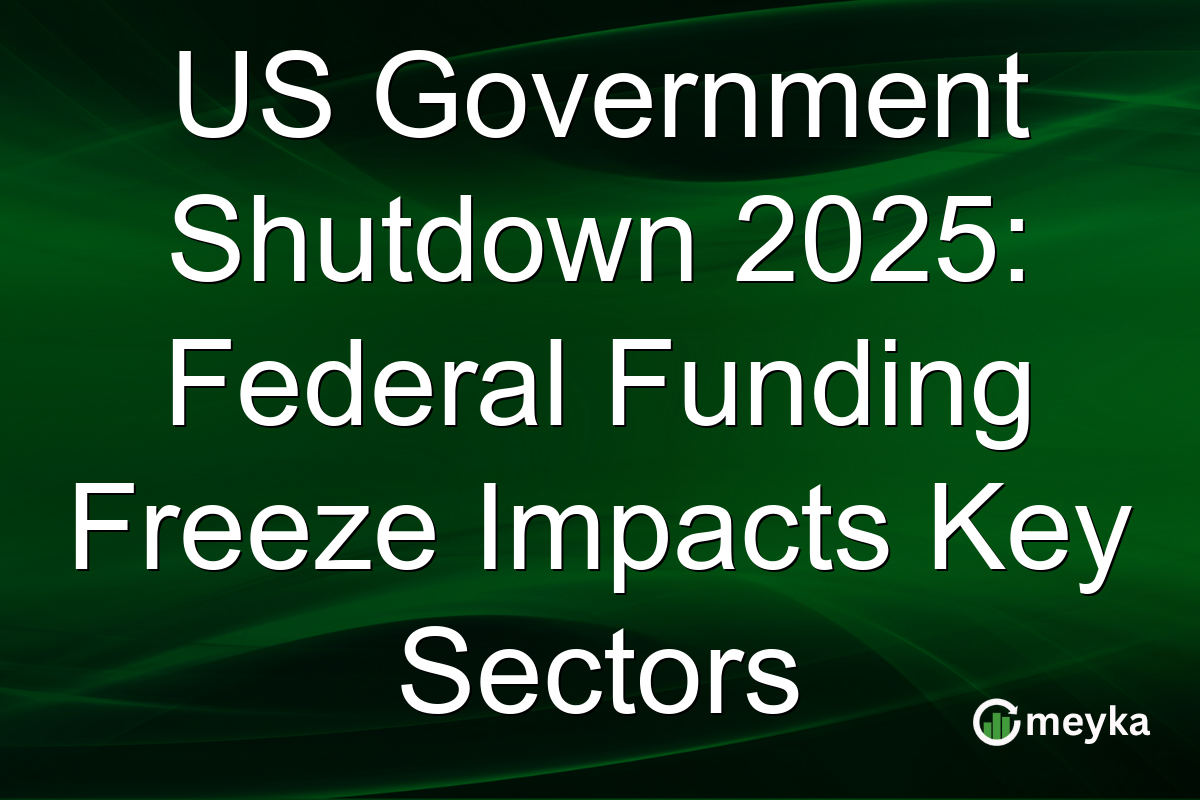US Government Shutdown 2025: Federal Funding Freeze Impacts Key Sectors
The US government shutdown of 2025 has captured national attention, triggered by a prolonged budget impasse. As federal agencies brace for an extended standoff, the immediate consequence is a federal funding freeze affecting multiple sectors. Energy projects and infrastructure developments are stalling, exacerbating debates over budget priorities. This article delves into the shutdown’s economic impact and potential long-term effects on key industries.
Understanding the Budget Impasse
The budget impasse at the heart of the US government shutdown 2025 stems from deep political divisions. The failure to agree on a federal budget has resulted in a funding freeze, halting non-essential government operations. Political factions are at odds over spending priorities, leading to this latest shutdown. The shutdown highlights significant governance challenges. Affected areas include national parks, federal research projects, and delays in processing government-backed loans and grants. This political drama showcases the fragile nature of current US governance structures. For more context on the government’s operational halt, see the latest coverage: US Government Begins Shut Down Most Operations.
Federal Funding Freeze and Economic Impacts
The impact of the federal funding freeze extends to economic growth and stability. According to recent reports, this freeze not only disrupts government functions but also stalls various initiatives crucial to infrastructure and energy sectors. Energetic projects, crucial to national development, are put on hold. This delay could significantly hinder progress on clean energy transitions and infrastructure improvements. The prolonged shutdown might cost the economy billions, affecting GDP growth by a significant margin. Such economic impacts stress the critical nature of a functioning federal budget. Economic uncertainty can deter investment, affecting markets and long-term economic health.
Political Repercussions and Public Sentiment
The political discourse surrounding the 2025 budget impasse is heated, as lawmakers face public scrutiny. The inability to reach an agreement raises questions about efficiency in government operations. Public sentiment appears to be growing increasingly frustrated with political gridlock. Many citizens are calling for bipartisan cooperation to resolve funding issues and prevent future occurrences. This public reaction underscores the need for political leaders to find common ground on spending priorities.
Implications for Future Governance
Looking ahead, the shutdown highlights vital governance implications. The recurring nature of these shutdowns raises concerns over the federal government’s ability to function effectively. This situation prompts discussions about restructuring budgetary processes to avoid similar predicaments. Establishing a more streamlined and effective budgeting process might be essential to improving federal stability and public trust. For a detailed analysis of the affected sectors, visit: US Energy Department Cancels $76 Billion Funding.
Final Thoughts
The US government shutdown in 2025 underscores significant issues within budget negotiations and governance. This federal funding freeze impacts key sectors, stalling projects vital to economic and infrastructure growth. As political leaders navigate this impasse, the potential long-term economic consequences loom large. Addressing these challenges requires not only political will but also systemic changes in budget processes. Ultimately, resolving this shutdown could pave the way for more stable governance structures, reducing future risks.
FAQs
The shutdown resulted from a budget impasse between political factions unable to agree on federal spending priorities, leading to a halt in non-essential government functions.
The funding freeze stalls projects, particularly in energy and infrastructure, which could hinder economic growth and development, potentially costing billions in lost GDP.
Reforming budget processes to ensure smoother negotiations and developing bipartisan agreements on spending could help prevent future shutdowns and improve governance.
Disclaimer:
This is for information only, not financial advice. Always do your research.






